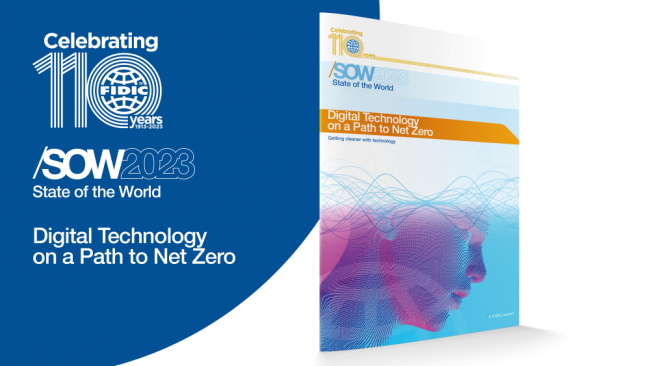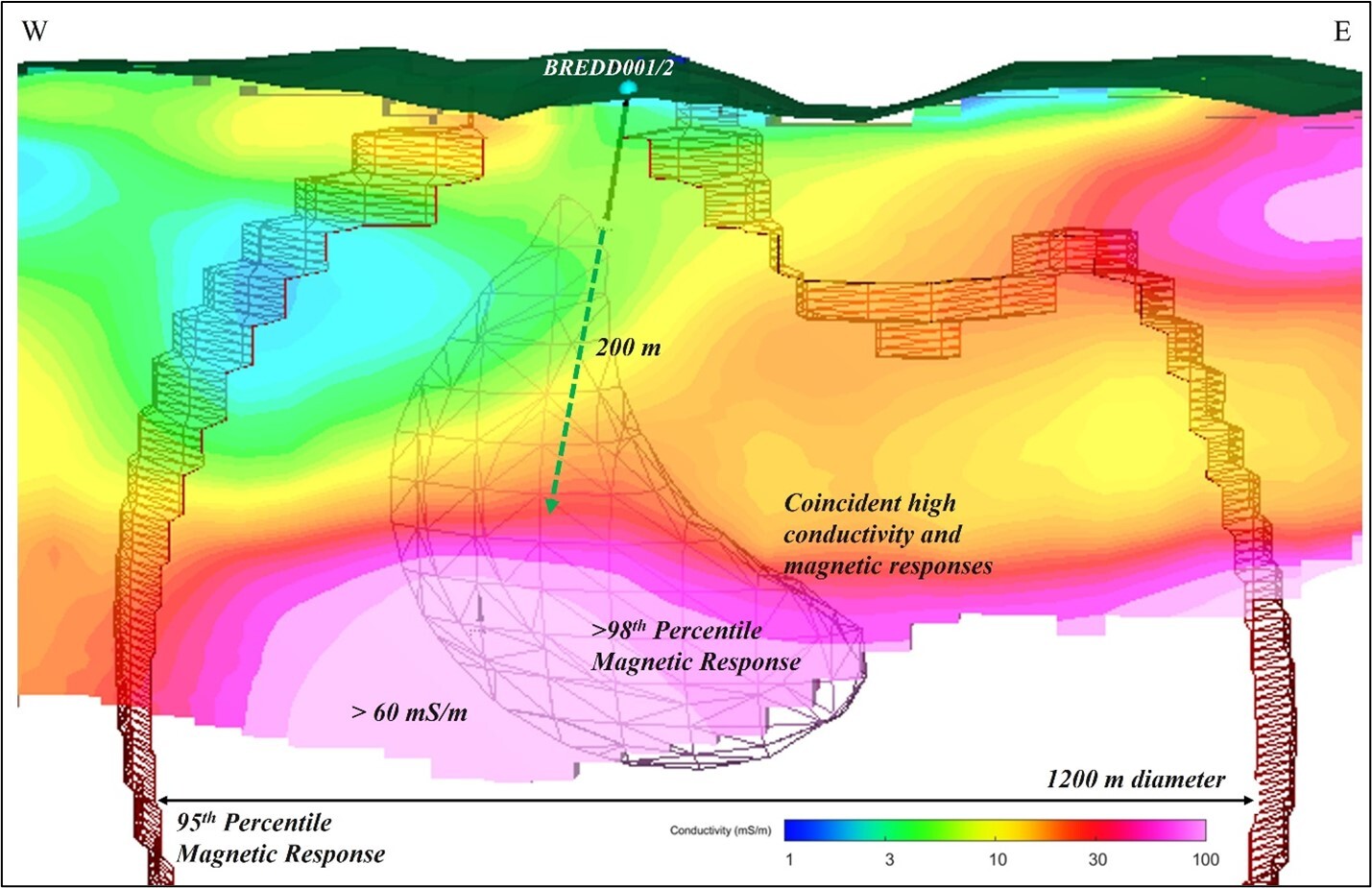In a new report launched this week, international engineering federation FIDIC (the International Federation of Consulting Engineers) says that in the drive to achieve net zero, the global infrastructure industry must choose the right technology for the job, incorporate technology into both new and existing infrastructure, collaborate effectively, challenge perceptions and take advantage of all the opportunities presented by technology and digital innovations.
FIDIC’s latest State of the World report, Digital Technology on a Path to Net Zero, highlights how digital technology is being used in the engineering, construction and infrastructure sector and how it is being applied to agendas such as carbon reduction and net zero. The report details the growing interest in technological change and carbon reduction and also the increasing need to understand how technologies will evolve, talk to each other, share data and inform decision-making going forward.
Using a combination of desk research and industry discussions, the report focuses in and takes a deeper look into how this change is occurring within the infrastructure sector and how this change also links to the reduction of carbon emissions. The report makes six key recommendations for the industry to follow if it is to effectively achieve a net zero future.
- Embrace the transformative power of digital systems to achieve ambitious net zero targets in the infrastructure sector.
- Prioritise adaptability and interoperability and the implementation of machine-based technologies in digital systems.
- Drive innovation through technology and unleash the potential of technology in both new infrastructure projects and the retrofitting of existing infrastructure.
- Seize the momentum of change and capitalise on the lessons learned from the Covid-19 pandemic’s profound impact on the infrastructure sector.
- Cultivate collaborative ecosystems and foster dynamic collaborations that unite stakeholders across the infrastructure sector.
- Overcome barriers and embrace innovation by confronting the barriers impeding the widespread adoption of digital technologies in the infrastructure industry.
The report is the eighth in the series of landmark FIDIC publications on the key infrastructure issues facing the world. The latest Digital Technology on a Path to Net Zero report highlights that digitalisation is a race into new frontiers. FIDIC says that given the two drivers of change that have emerged in the last few years, the race in the digital space has taken on a completely new face. The first of these is the pandemic, which has accentuated the value of automation, remote monitoring, data-driven forecasting and digital collaboration and the second is the growing urgency of climate action and the energy transition, for which new energy systems of increasing complexity, decentralisation, and diversification are being created ever faster around the world.
Digital Technology on a Path to Net Zero makes the point that organisations that lead with data and new technologies gain profitability and market share while also advancing towards shared social and environmental goals. Commenting on the report, FIDIC CEO Dr Nelson Ogunshakin said: “This report takes a deeper dive into the profound and transformative impact of digitalisation on the infrastructure sector’s mission to achieve carbon reduction goals. Building on FIDIC’s previous 2022 report on digital disruption, the report uncovers the relentless pace of change and the pivotal role of technology as both a disruptor and an innovator across industries.
“By embracing the inevitability of this seismic shift, FIDIC believes that stakeholders can unleash the true potential of digital transformation to confront pressing challenges and pave the way towards a sustainable future.”
FIDIC president Tony Barry said: “Whilst technology is clearly a key driver to achieving net zero, the implementation of real change and the use of technology goes hand in hand with how companies and stakeholders collaborate, design their systems to interact and are truly ‘future-proofed. There are definitely lessons to be learnt in this space as net zero will require full collaboration, data sharing, analysis sharing, performance sharing, risk management, lifecycle infrastructure service management and full carbon/sustainability reporting.”
You can download the FIDIC State of the World report, Digital Technology on a Path to Net Zero at https://fidic.org/sites/default/files/SOTW_2023_Digital_Technology_Report_v10b_2.pdf
FIDIC, the International Federation of Consulting Engineers, is the global representative body for national associations of consulting engineers and represents over one million engineering professionals and 40,000 firms in more than 100 countries worldwide. The buildings and infrastructure sector in which FIDIC members work contributes around US$36trillion to global GDP.




